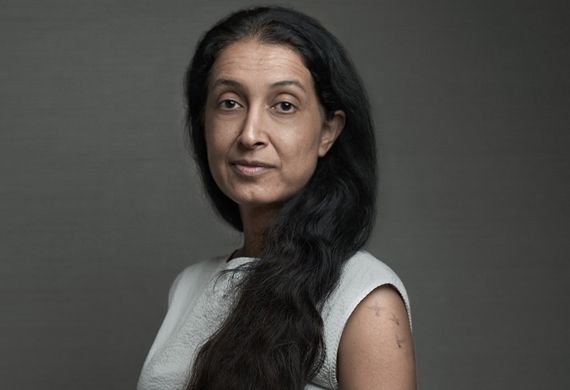
Inheriting Wisdom While innovating Leadership for the Next Generation
By: Shaheen Mistri, Founder & CEO, Teach For India
Shaheen Mistri is a visionary leader dedicated to eradicating educational inequity in India. Over three decades, she has impacted millions through initiatives like Akanksha Foundation, Firki, and TFIx, mobilizing networks and driving systemic change in education nationwide.
In a recent interaction with Women Entrepreneurs Review Magazine, Shaheen shares insights on how leadership can evolve from a hierarchical concept to a collective, transformative force in classrooms, emphasizing the role of women alumni in driving sustainable change in the social impact sector. She also explores the generational shifts in leadership and the importance of intergenerational learning.
How can classrooms reimagine leadership not as a singular, hierarchical concept but as a collective, transformative force? How are women alumni leaders leveraging this shift in the social impact space?
It's important to embody the concept of collective leadership, recognizing that transformative change in education requires a diverse network of individuals working together.
Women alumni leaders have been able to bring a unique perspective, emphasizing empathy, collaboration, and a focus on community well-being. They are instrumental in driving innovative solutions and fostering a more inclusive and equitable education system.
By embracing collective leadership, we strongly believe in empowering individuals to become changemakers, fostering a movement that extends far beyond the classroom and contributes to a more equitable future for India.
With the growing trend of women leading social impact initiatives, what are some of the leadership qualities that can be harnessed in the classroom?
A classroom is a great place for sparks of ideas to ignite and become big dreams and aspirations. We promote inclusivity in our classrooms and give equal opportunities to all our students so that leadership skills can be developed holistically. Teach For India has codified some of these important characteristics into the "8Cs" - 21st-century values and skills that we think will be very important for a rapidly changing world. These are creativity, consciousness, collaboration, courage, compassion, critical thinking, communication, and curiosity. By incorporating these leadership qualities into the classroom, educators can empower students to become the next generation of changemakers, driving positive social impact in their communities and beyond.
How can women leaders, who have navigated both educational and societal challenges, redefine what leading with purpose looks like in the Indian social impact sector?
We are seeing a gradual shift in mindset towards building an equitable society. There is still a lot of work and awareness to be built within our classroom for systemic change to thrive and survive. Women leaders in India, having overcome various societal challenges, possess unique insights and experiences that can redefine leadership. They can champion a more inclusive and equitable approach to leadership, emphasizing the following:
- Collective Leadership: Recognizing the power of collaboration and shared decision-making, fostering a sense of collective ownership and responsibility.
- Empathy and Inclusivity: Prioritizing the needs and perspectives of marginalized communities, ensuring that leadership initiatives are responsive to their unique challenges.
- Cultural Sensitivity: Understanding the diverse social and cultural contexts of India, tailoring leadership approaches to address the specific needs of different communities.
- Empowerment: Empowering individuals at the grassroots level, fostering a sense of agency and ownership in driving social change.
- Sustainability: Focusing on long-term, sustainable solutions that address the root causes of social issues, rather than short-term interventions.
- By embracing these principles, women leaders can redefine what it means to lead with purpose in the Indian social impact sector, creating a more just and equitable society for all.
If we were to design a classroom environment that doesn’t just teach leadership but actively creates leaders who can navigate India’s complex social problems, what experimental elements would you integrate into these educational spaces?
We believe that classrooms that redefine the purpose of education actively create leaders. At Teach For India, our vision for education is that of self, others and India. By self we mean that children should deeply understand who they are,and their purpose and work towards a life and livelihood of their choice. By other we mean that children should not solely focus on themselves; they should treat others as equals, learn to listen and value differences, and work to create opportunities for others to learn and thrive. By India, we want our children to have an understanding of our Constitutional values, find issues around them that they'd like to engage with, and become change-makers who will work for a better India. By sensitizing all of our children - girls and boys - to gender equality, we find our children grow up to respect and value women.
How are women leaders reimagining the intersection of personal purpose and social responsibility?
Women leaders are redefining the intersection of personal purpose and social responsibility by prioritizing empathy, collaboration, and community-centered approaches. This shift challenges traditional leadership models, which often emphasize individual achievement and hierarchical structures.
When we speak of women paving the way in social impact, what generational shifts are you seeing in leadership?
We now see girls graduating from school and college when family members may not have had the opportunity to do so. We also see girls getting jobs when family members may not have had the choice to find employment outside the house. We see girls speak up against things that bother them, both for themselves and others.


.jpg)



